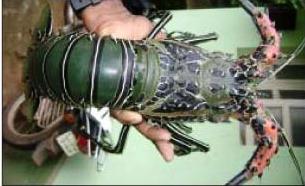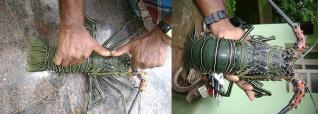
Tiger prawn, also known as giant, jumbo prawn, are one of the larger members of the shrimp family, and are native to the Indian, Japan and Australia oceans, said a biologist.
The Penaeus monodon is the scientific name of this prawn.


Tiger prawn, also known as giant, jumbo prawn, are one of the larger members of the shrimp family, and are native to the Indian, Japan and Australia oceans, said a biologist.
The Penaeus monodon is the scientific name of this prawn.

Comments
Add new comment